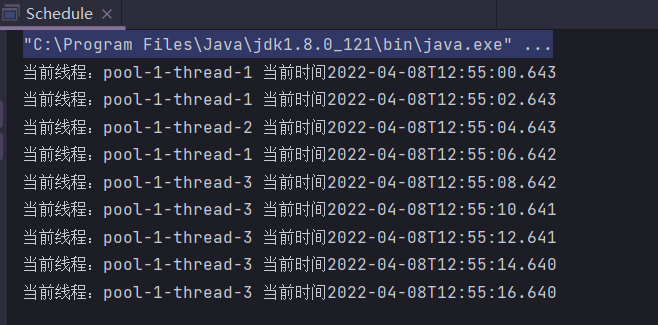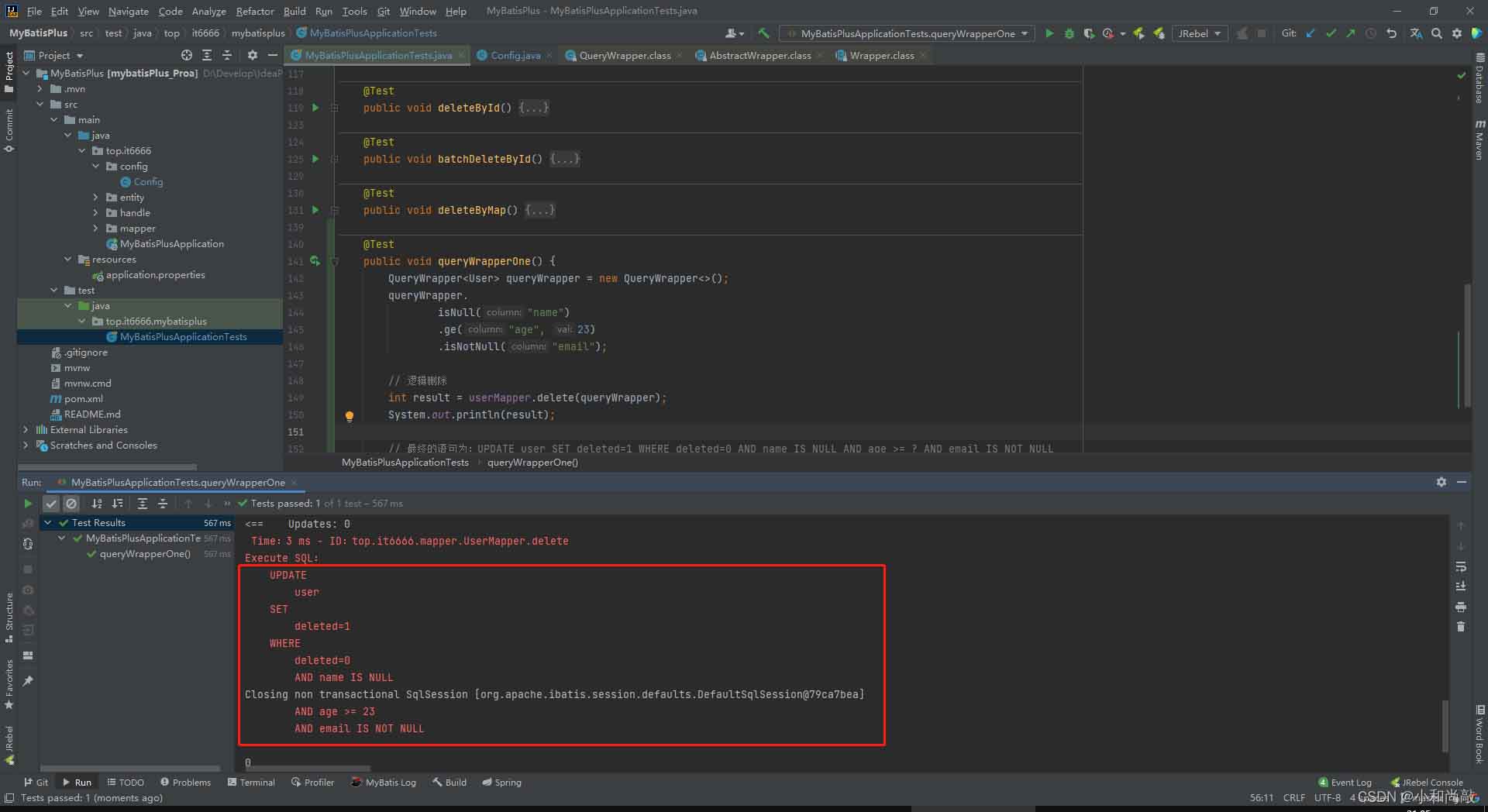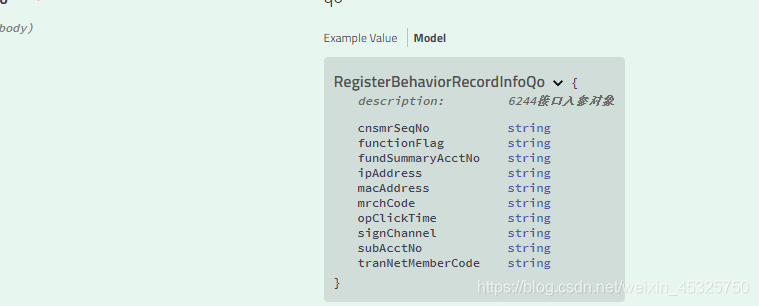这篇文章主要为大家介绍Quarkus中ConfigSourceInterceptor加密配置的实现方式,有需要的朋友可以借鉴参考下,希望能够有所帮助,祝大家多多进步,早日升职加薪
前言
加密配置是一个很常见的需求,在spring boot生态中,已经有非常多的第三方starter实现了,博主所在公司也有这种强制要求,一些敏感配置信息必须加密,比如第三方账号,数据库密码等等。所以研究了下怎么在Quarkus中实现类似的配置加密功能。在前文 Quarkus集成apollo配置中心 中,已经有介绍过Quarkus中的配置架构了,配置加密功能也是基于smallrye-config来实现。
Eclipse MicroProfile Config:https://github.com/eclipse/microprofile-config/
smallrye-config:https://github.com/smallrye/smallrye-config
配置拦截器 ConfigSourceInterceptor
在实现功能前,先看下smallrye-config1.8版本新增的配置拦截器功能。ConfigSourceInterceptor拦截器定义如下:
public interface ConfigSourceInterceptor extends Serializable {
ConfigValue getValue(ConfigSourceInterceptorContext context, String name);
//省略、、、
}实现这个接口,可以在配置加载的时候通过context拿到当前配置的值,然后进行任意逻辑操作。
拦截器是通过java.util.ServiceLoader机制加载的,可以通过提供名为io.smallrye.config.ConfigSourceInterceptor的文件进行注册,该资源META-INF/services/io.smallrye.config.ConfigSourceInterceptor包含完全限定的ConfigSourceInterceptor实现类名称作为其内容。
前文 Quarkus集成apollo配置中心 中,我们已了解Quarkus的配置基于Eclipse MicroProfile Config的规范和smallrye-config的实现,但是ConfigSourceInterceptor的接口设计却没有包含在MicroProfile Config的配置规范中,smallrye团队正在努力参与规范的制定,所以后期这个接口很有可能会迁移到 MicroProfile Config包中,不过目前来看,你可以放心的使用smallrye-config1.8版本体验配置拦截器功能
内置的实现
smallrye-config内置了如下配置拦截器实现:
RelocateConfigSourceInterceptor
ProfileConfigSourceInterceptor
ExpressionConfigSourceInterceptor
FallbackConfigSourceInterceptor
LoggingConfigSourceInterceptor
SecretKeyConfigSourceInterceptor
默认情况下,并非每个拦截器都已注册。只有ProfileConfigSourceInterceptor, ExpressionConfigSourceInterceptor、SecretKeyConfigSourceInterceptor默认已注册。
其他拦截器需要通过ServiceLoader机制进行手动注册。配置中的${}表达式功能正是ExpressionConfigSourceInterceptor来实现的
加密配置实现
基于ConfigSourceInterceptor的机制,实现一个加密的拦截器,在配置时,标记需要被解密的配置,在应用启动时,拦截配置加载,做解密处理即可。这里使用了AES加解密算法,将aesKey配置在配置文件中,将vi向量直接写死在代码里,这样,即使别人拿到了你的完整配置,不知道vi向量值,也无法解密。
ConfigSourceInterceptor实现类可以通过标准javax.annotation.Priority 注释指定优先级。如果未明确指定优先级,则采用io.smallrye.config.Priorities.APPLICATION默认优先级值 。指定优先级时,value值越小,优先级越高,这里指定为PLATFORM早期拦截,代码如下:
/**
* 1、使用方式为 正常配置值的前面拼接Encrypt=>字符串,如
* quarkus.datasource.password = Encrypt=>xxxx
* 2、配置解密的aeskey值,如
* config.encrypt.aeskey = 11111111111111111
*
* @author kl : http://kailing.pub
* @version 1.0
* @date 2020/7/10 9:46
*/
//value 值越低优先级越高
@Priority(value = Priorities.PLATFORM)
public class EncryptConfigInterceptor implements ConfigSourceInterceptor {
private static final String CONFIG_ENCRYPT_KEY = "config.encrypt.aeskey";
private static final int AES_KEY_LENGTH = 16;
/**
* 需要加密值的前缀标记
*/
private static final String ENCRYPT_PREFIX_NAME = "Encrypt=>";
/**
* AES加密模式
*/
private static final String AES_MODE = "AES/CBC/PKCS5Padding";
/**
* AES的iv向量值
*/
private static final String AES_IV = "1234567890123456";
@Override
public ConfigValue getValue(ConfigSourceInterceptorContext context, String name) {
ConfigValue config = context.proceed(name);
if (config != null && config.getValue().startsWith(ENCRYPT_PREFIX_NAME)) {
String encryptValue = config.getValue().replace(ENCRYPT_PREFIX_NAME, "");
String aesKey = context.proceed(CONFIG_ENCRYPT_KEY).getValue();
String value = AesEncyptUtil.decrypt(encryptValue, aesKey);
return config.withValue(value);
}
return config;
}
public static void main(String[] args) {
System.out.println("加密后的配置:"+ AesEncyptUtil.encrypt("office#123", "1111111111111111"));
}
static class AesEncyptUtil{
public static Cipher getCipher(int mode, String key) {
if (key == null || key.length() != AES_KEY_LENGTH) {
throw new RuntimeException("config.encrypt.key不能为空,且长度为16位");
}
SecretKeySpec skeySpec = new SecretKeySpec(key.getBytes(), "AES");
//使用CBC模式,需要一个向量iv,可增加加密算法的强度
IvParameterSpec iv = new IvParameterSpec(AES_IV.getBytes());
Cipher cipher = null;
try {
cipher = Cipher.getInstance(AES_MODE);
cipher.init(mode, skeySpec, iv);
} catch (InvalidKeyException | InvalidAlgorithmParameterException | NoSuchPaddingException | NoSuchAlgorithmException e) {
e.printStackTrace();
}
return cipher;
}
/**
* AES加密函数
* @param plaintext 被加密的字符串
* @param key AES key
* @return 加密后的值
*/
public static String encrypt(final Object plaintext, String key) {
if (null == plaintext) {
return null;
}
byte[] encrypted = new byte[0];
try {
Cipher encryptCipher = getCipher(Cipher.ENCRYPT_MODE, key);
encrypted = encryptCipher.doFinal(String.valueOf(plaintext).getBytes(StandardCharsets.UTF_8));
} catch (IllegalBlockSizeException | BadPaddingException e) {
e.printStackTrace();
}
//此处使用BASE64做转码。
return Base64.getEncoder().encodeToString(encrypted);
}
/**
* AES 解密函数
*
* @param ciphertext 被解密的字符串
* @param key AES key
* @return 解密后的值
*/
public static String decrypt(final String ciphertext, String key) {
if (null == ciphertext) {
return null;
}
try {
Cipher decryptCipher = getCipher(Cipher.DECRYPT_MODE, key);
//先用base64解密
byte[] encrypted1 = Base64.getDecoder().decode(ciphertext);
byte[] original = decryptCipher.doFinal(encrypted1);
return new String(original, StandardCharsets.UTF_8);
} catch (Exception ex) {
ex.printStackTrace();
return null;
}
}
}
}记得将完整的类名写入到META-INF/services/io.smallrye.config.ConfigSourceInterceptor这个文件中。使用时先配置好加密的key,在application.properties中添加如下配置:
config.encrypt.aeskey = xxxxxxxxxxxxxx配置值一定要16位,然后将需要加密的值,使用AesEncyptUtil.encrypt(final Object plaintext, String key)方法先得到加密的值,然后做如下配置,以数据库密码为例:
quarkus.datasource.username=mobile_office
quarkus.datasource.password=Encrypt=>/8wYwbxokEleEZzT4niJew==使用Encrypt=>标记了这个值是加密的,应用程序加载时会被拦截到,然后做解密处理
结语
总的来说,Quarkus中使用的一些api设计是非常优秀的的,通过预留的这种扩展机制,可以非常轻松的实现扩展功能。
以上就是Quarkus中ConfigSourceInterceptor的加密配置实现的详细内容,更多关于Quarkus中ConfigSourceInterceptor加密的资料请关注编程学习网其它相关文章!
本文标题为:Quarkus中ConfigSourceInterceptor的加密配置实现


- 基于Java Agent的premain方式实现方法耗时监控问题 2023-06-17
- Spring Security权限想要细化到按钮实现示例 2023-03-07
- SpringBoot使用thymeleaf实现一个前端表格方法详解 2023-06-06
- JSP页面间传值问题实例简析 2023-08-03
- ExecutorService Callable Future多线程返回结果原理解析 2023-06-01
- Java实现顺序表的操作详解 2023-05-19
- JSP 制作验证码的实例详解 2023-07-30
- Java中的日期时间处理及格式化处理 2023-04-18
- 深入了解Spring的事务传播机制 2023-06-02
- Springboot整合minio实现文件服务的教程详解 2022-12-03









